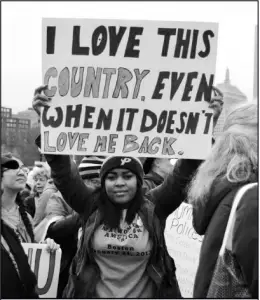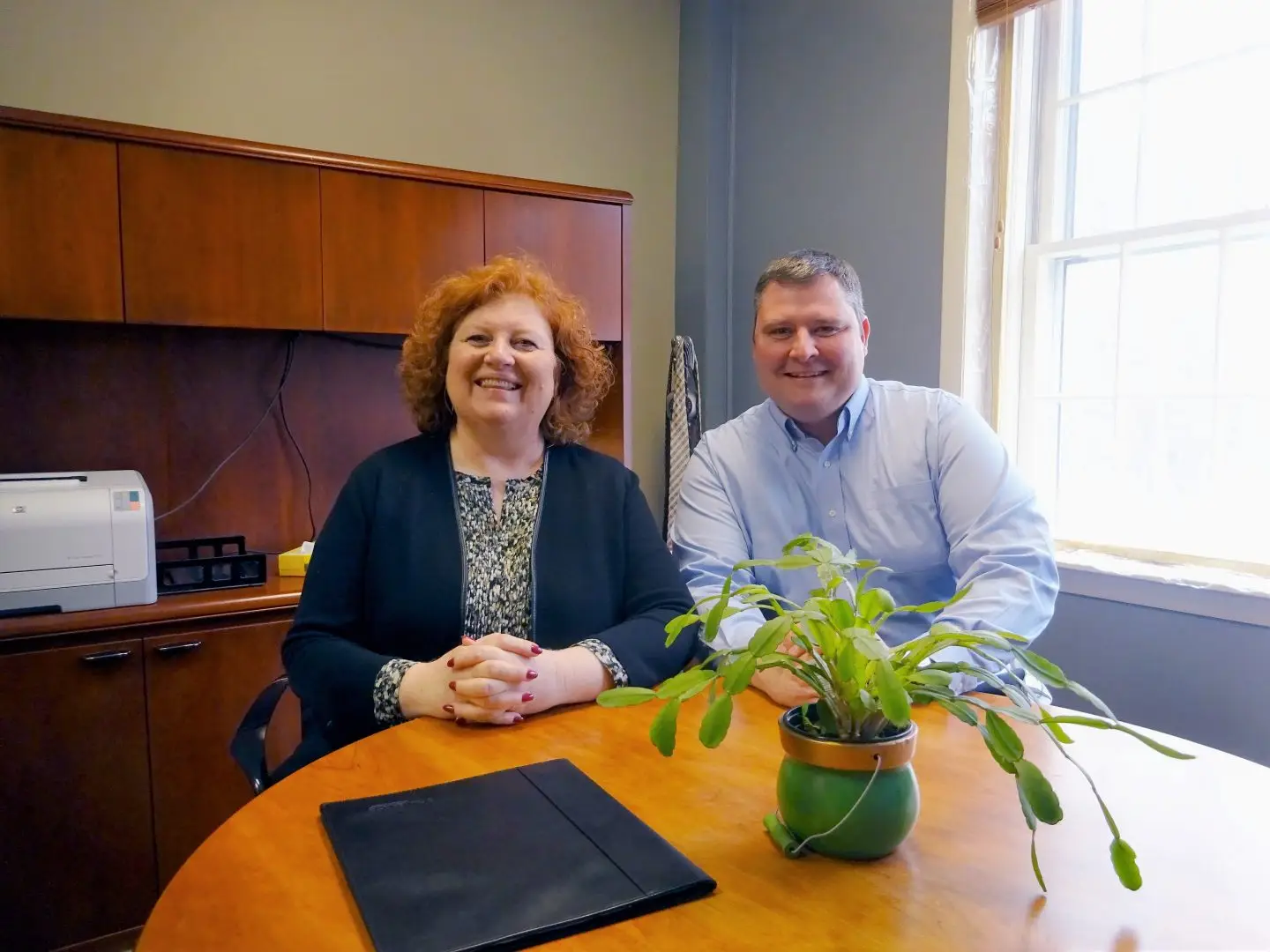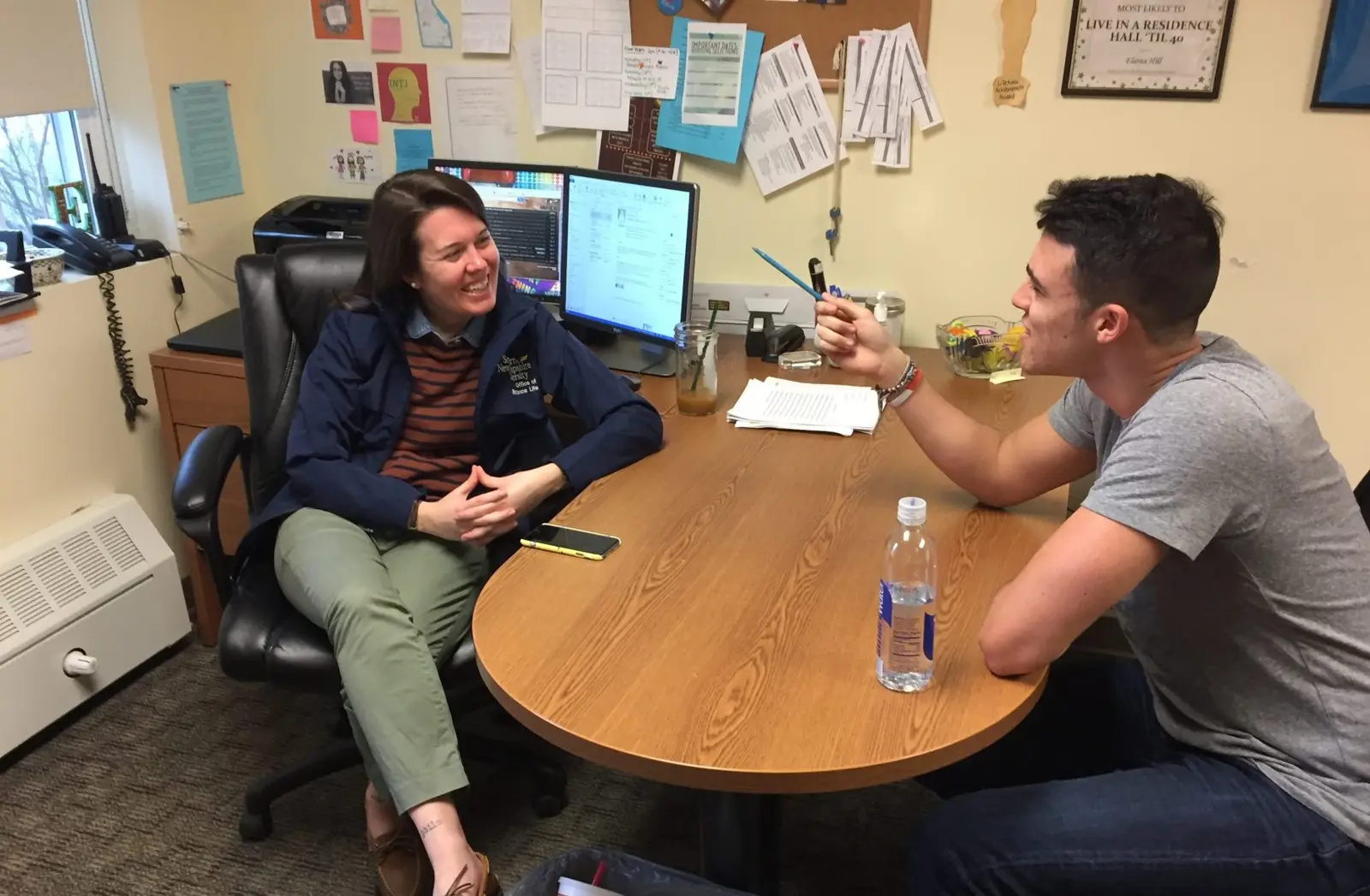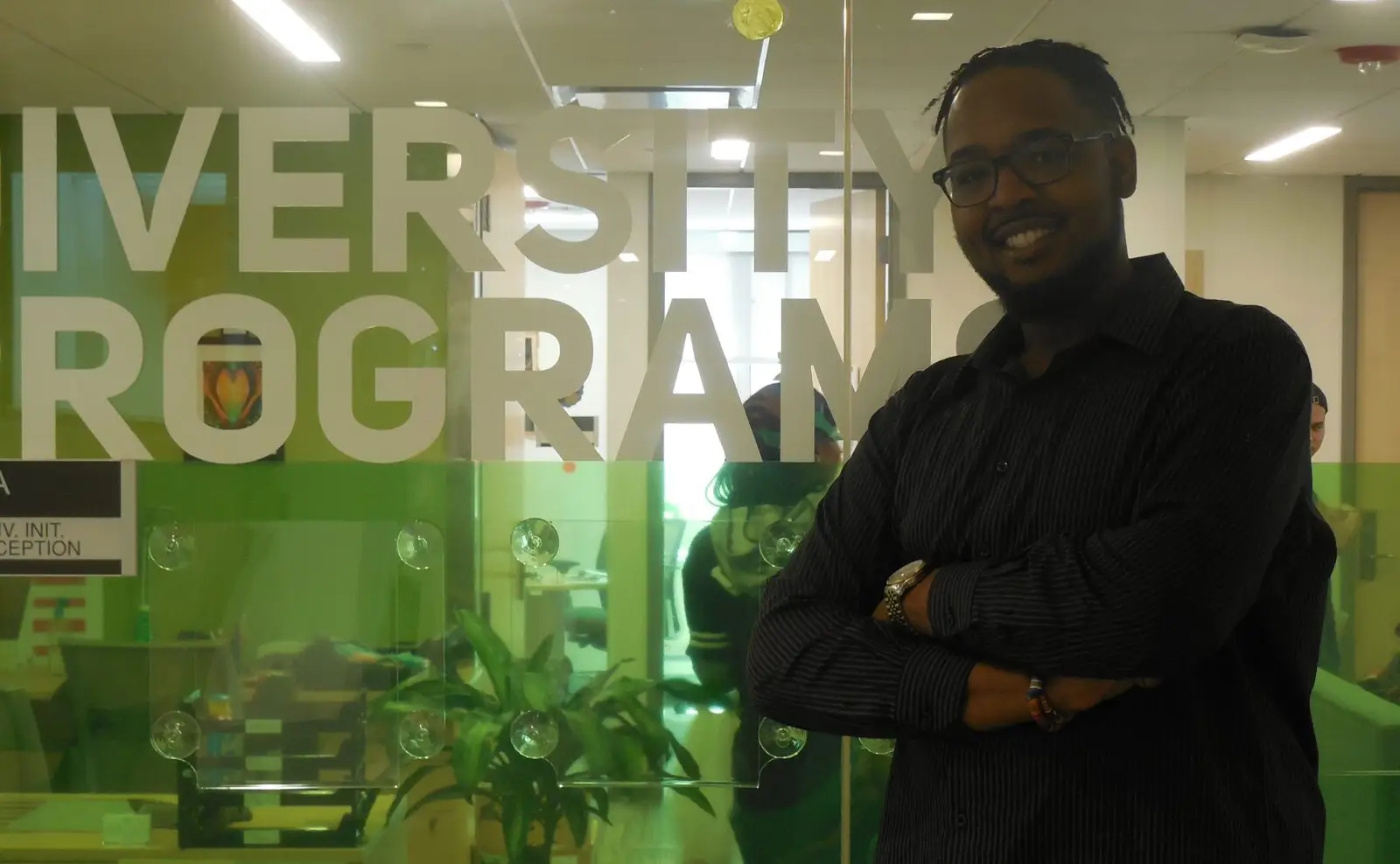To peacefully protest President Donald Trump’s campaign promises and the attitudes of many Americans today, 175,000 people gathered in Boston Commons on Saturday, January 21, the day following Trump’s inauguration.
Signs, some handmade and others printed, were thrusted into the air by arms that never seemed to tire. Men, women and children present asked for equality for everyone, regardless of gender, race, religion, ability or sexual orientation. Southern New Hampshire University (SNHU) students, faculty and alumni marched on Boston and into history that day. The Deborah L. Coffin Women’s Center organized the trip that departed SNHU at 8:30 a.m. The staff rented a coach bus, hosted a sign-making party, designed t-shirts and gathered snacks for the ride.
“As soon as word broke that there were going to be Women’s Marches held the day after the inauguration, some colleagues and I immediately began discussing how we could get a contingent of SNHU folks to one of the marches,” Brooke Gilmore, the director of the Women’s Center said. “This is a time when a lot of women are feeling angry, silenced, and are wondering “what now?” It seemed like a pivotal moment to bring people together as part of a larger movement to reclaim a sense of power.”
The Boston Women’s March for America was one of 700 sister marches that happened worldwide. The SNHU community made up 40 of the 5 million marchers on all seven continents.
“Originally, we were hoping to be part of the march in Washington D.C., as it seemed like that was going to be the largest, most historic and symbolic of the marches,” Gilmore said. “In hindsight, we’re thrilled we decided to go to Boston instead, as it allowed a larger and more diverse group of people from SNHU to attend. It also turned out that we didn’t need to be in DC to be part of history.” Diana Polley, associate professor of English, marched because “peaceful protest is a foundation of democracy. It’s our responsibility as American citizens to think critically about our government and take action when we feel our government is not representing the best interests of its citizens.”
Issues such as gender equality, reproductive rights, healthcare, protection for immigrants and refugees, people of color and the LGBTQ+ community have been hotly debated lately. Speakers represented many of these issues in speeches that riled the marchers up. Mass. Senator Elizabeth Warren was met with a deafening applause after exclaiming, “we come here to stand shoulder to shoulder to make clear: we are here, we will not be silent, we will not play dead. We will fight for what we believe in.”
The line to march stretched for hours, as Boston was prepared for 25,000 people, the number of marchers they had initially expected. “The crowd never felt angry, even while we stood waiting for hours; there were just a few grumbles,” junior Elle Tibbitts said. “It felt passionate, considerate and peaceful.” Junior Dee Dube agreed that the crowd was passionate. “The crowd was pumped to be there and to be loud. We were angry, but we used that energy to get our message across rather than to be destructive or mean.” Dube draped the pride flag around her shoulders as she marched and held a sign that had the meaning of the flag’s colors written on it (life, healing, sunlight, nature, serenity and spirit).
While the march officially began at 1 p.m., SNHU marchers had to wait until 2:30 p.m. to enter the streets. Other signs that SNHU students carried said, “SNHU trumps hate,” “SNHU women are stronger together,” “I love this country, even when it doesn’t love me back” and “the Republicans want to take away my birth control but that’s only going to make more Democrats.”
SNHU students were grateful that the Women’s Center organized this trip. Freshman Anna Laugelle said, “It is very important for SNHU to support events like this because it makes students aware of events that they otherwise may not hear about and gives students a chance to stand up for something they believe in and become active participants in a larger movement.”
Senior Aubrey Shimabukuro said other marchers were surprised to hear that a university sponsored a trip to the march. “We’re so lucky at SNHU to have a school that supports students in these matters,” Shimabukuro said.
Following the conclusion of the speeches and the beginning of the march, the sun broke through the dense clouds that hung over Boston all morning. Chants such as “love, not hate, makes America great,” “we’re nasty, we’re proud, we’re not afraid to be loud” and “this is what democracy looks like” ran through the streets as marchers made their feelings toward the new president’s campaign promises known.
Everyone came to the march with their own story to tell. Tibbitts marched “because it was the right thing to do, because I believe that every person has value, and I am determined to fight for those who don’t feel like they can fight for themselves.” Dube said, “I marched because our current administration is already ignoring the voices of marginalized people in this country, and I knew this march would send the message that we are not going to be ignored.”
This peaceful protest was just that: peaceful. It was filled with angry and passionate people, but it did not become violent. Boston Police Officers lined the roads, American flags flew in the air, people lined the streets to cheer on the marchers and the activists marched.
“For many students, this might have been their first taste of activism and it was a wonderful introduction because it was so large, so varied but united and so peaceful,” English professor Allison Cummings said. “Gloria Steinem says, ‘you always remember your first love and your first march.’”





